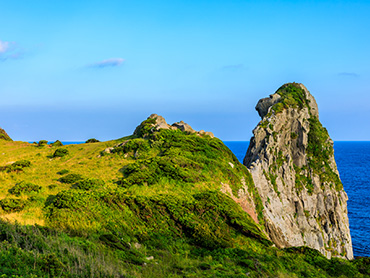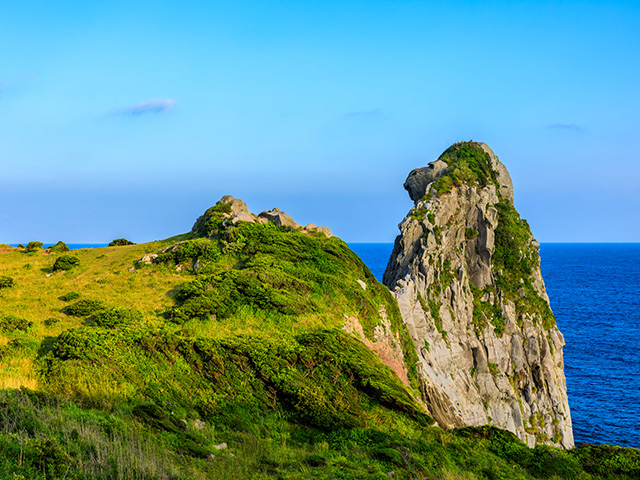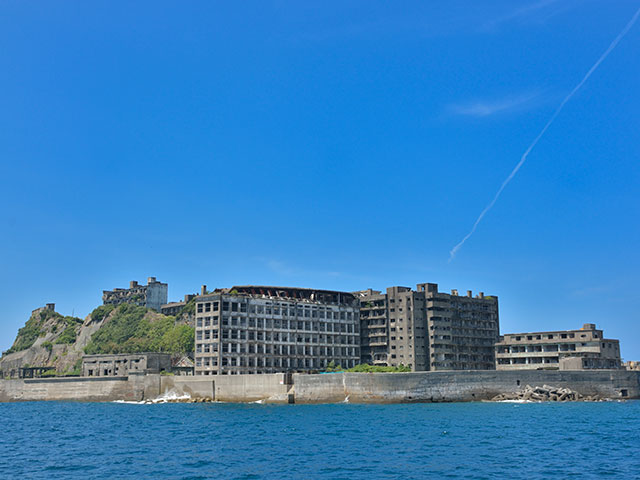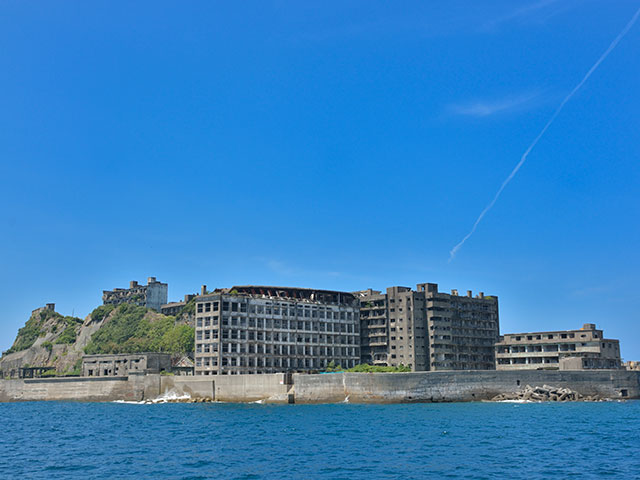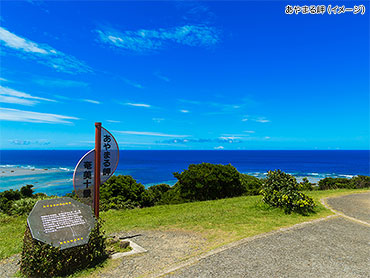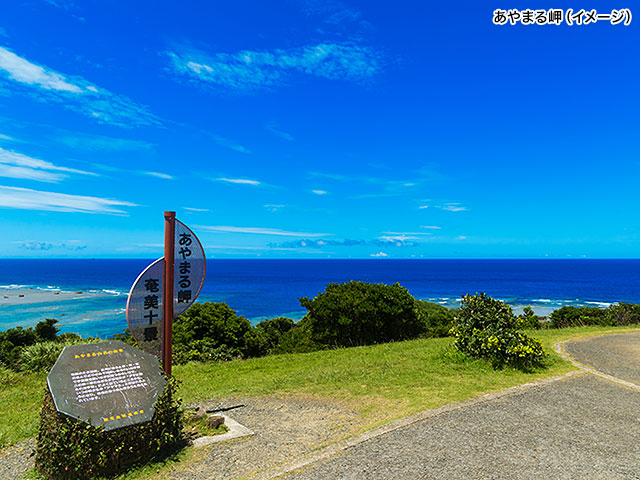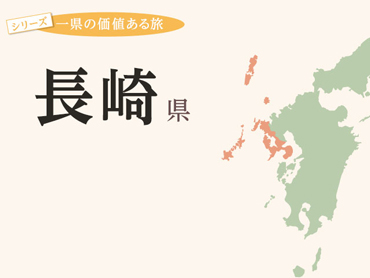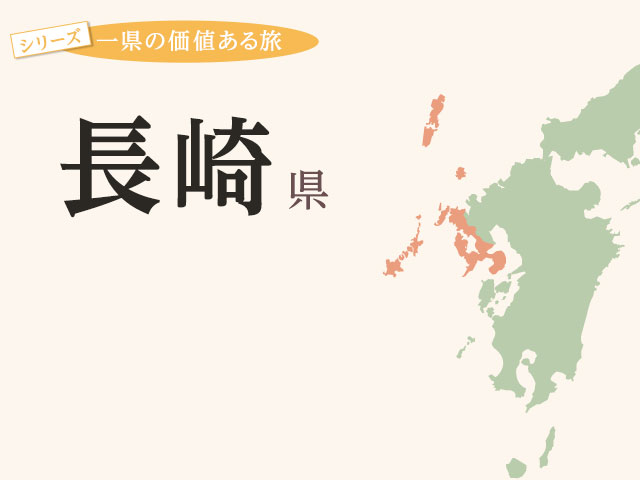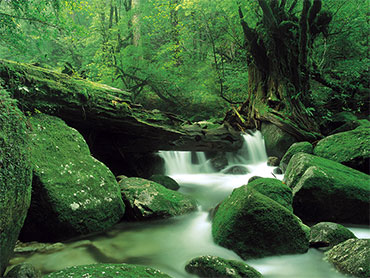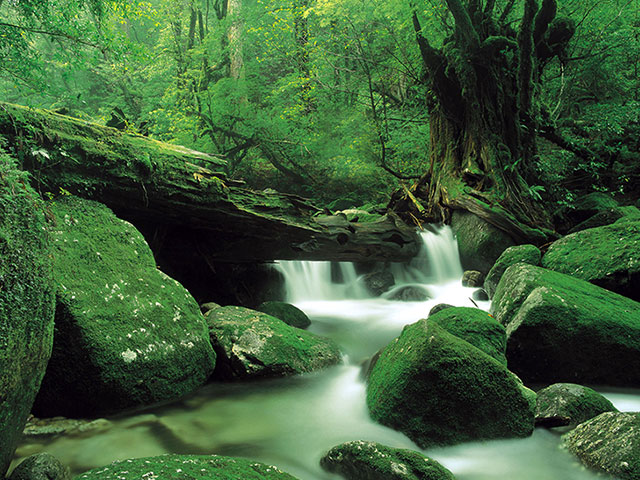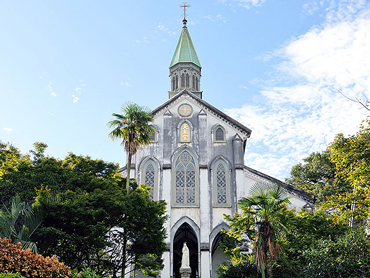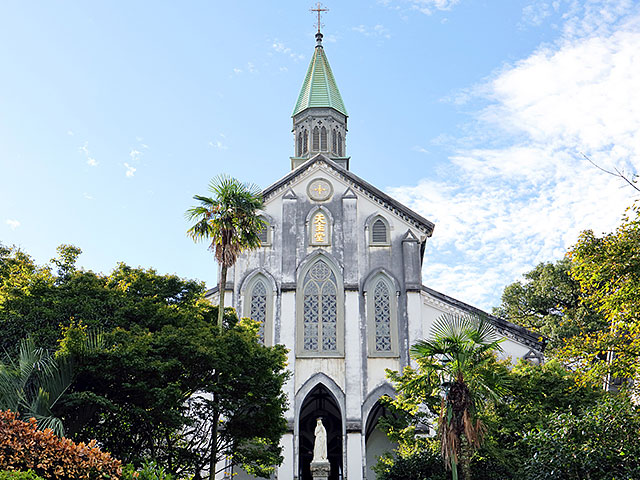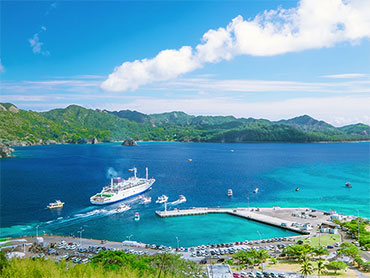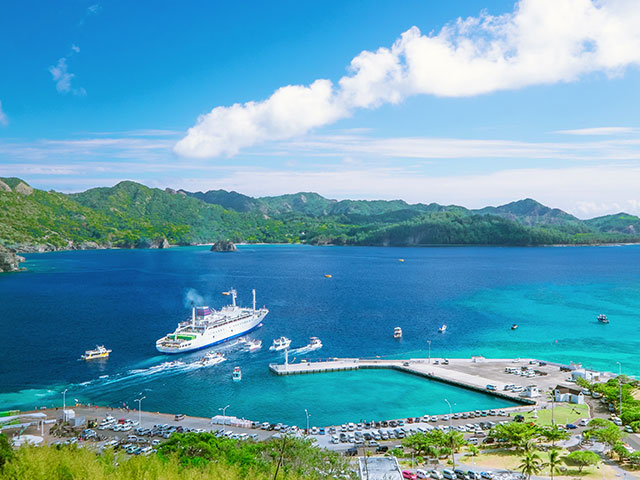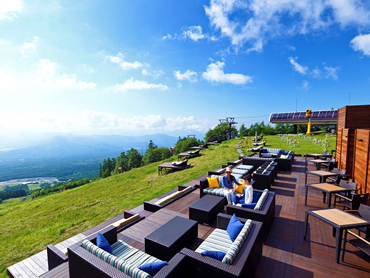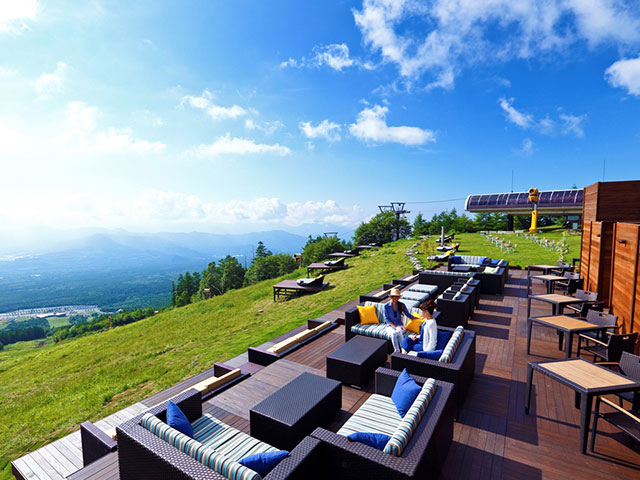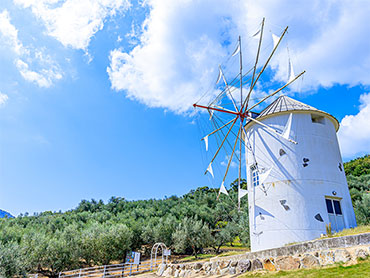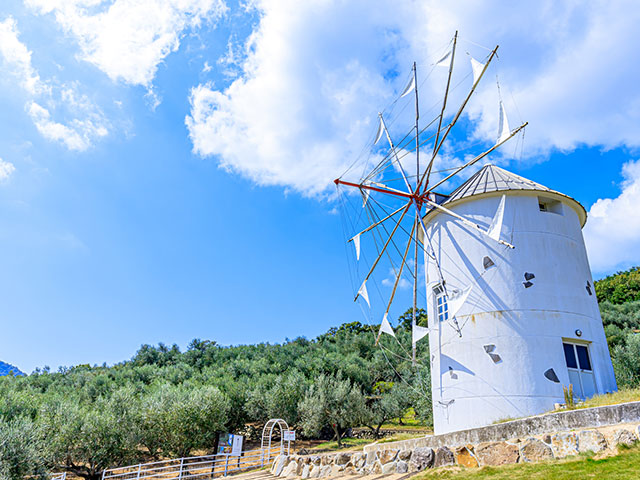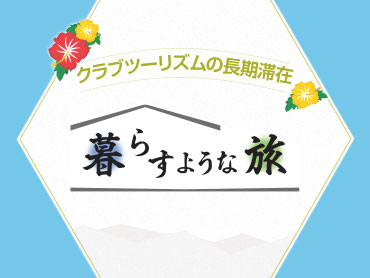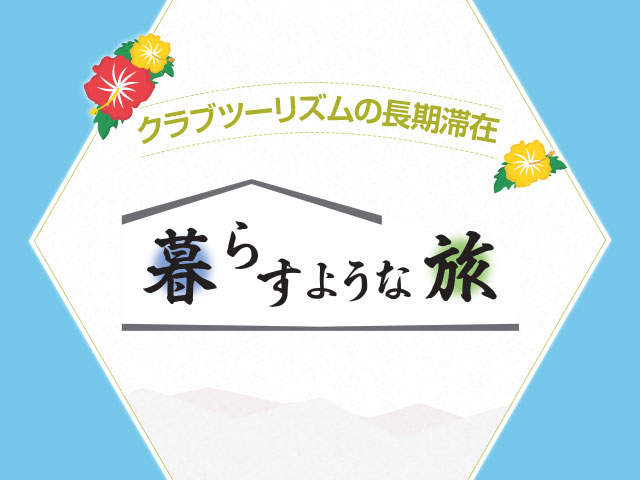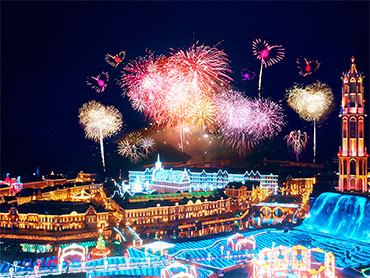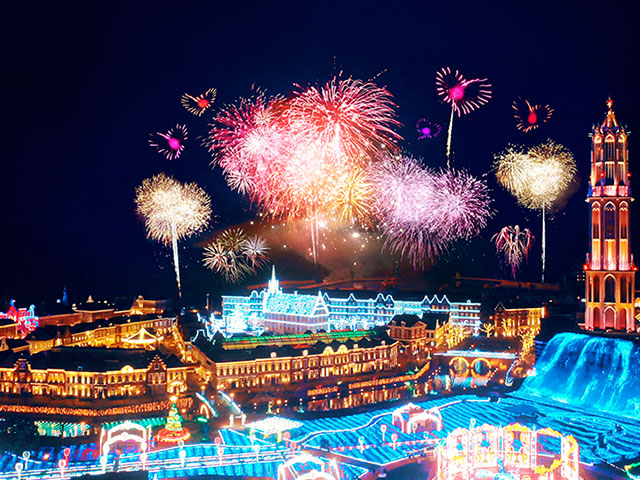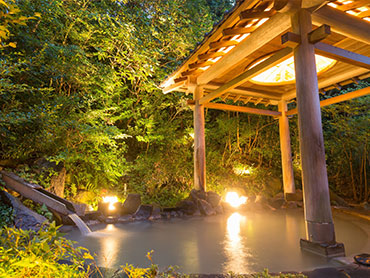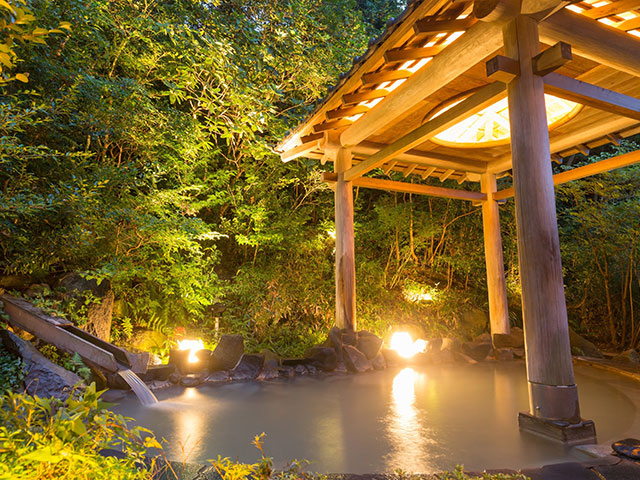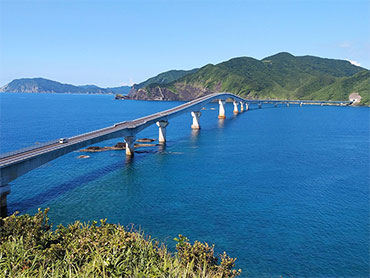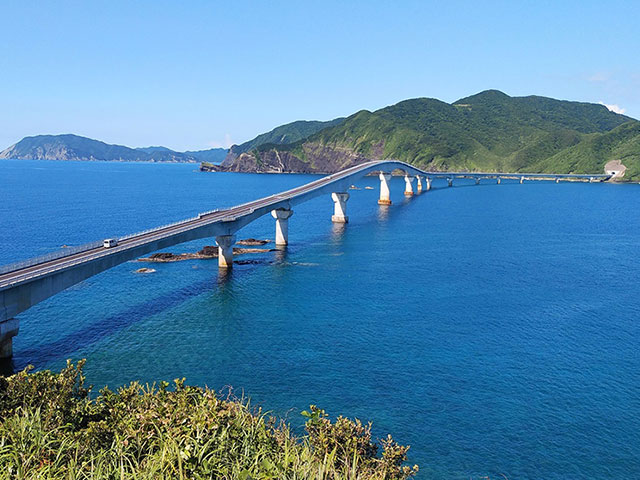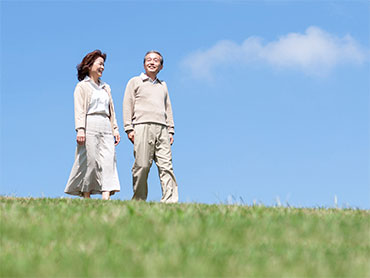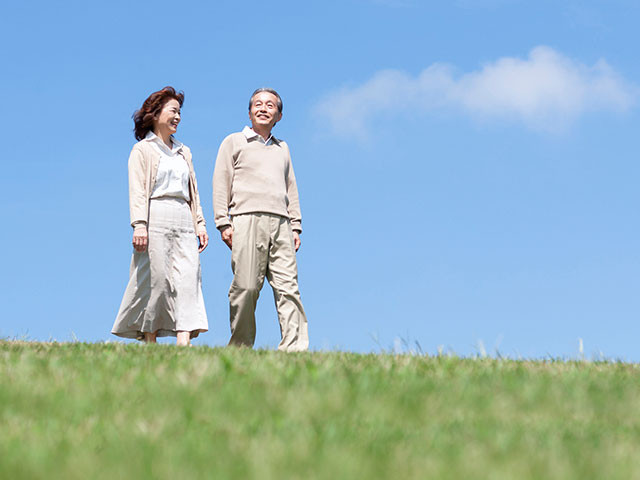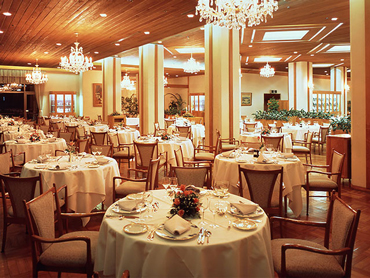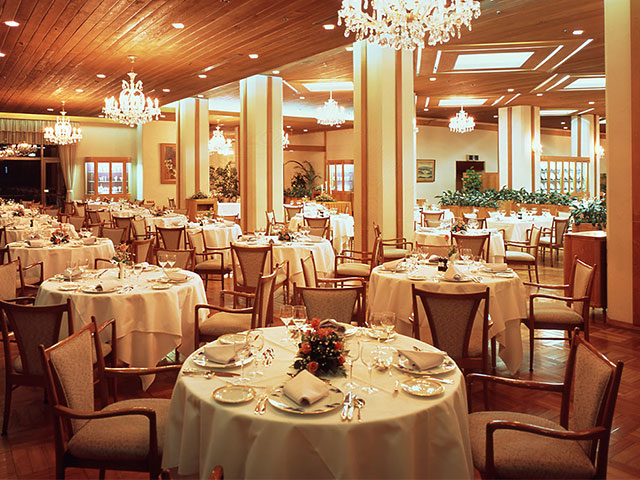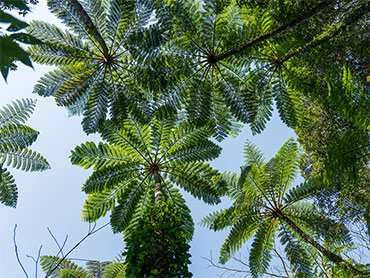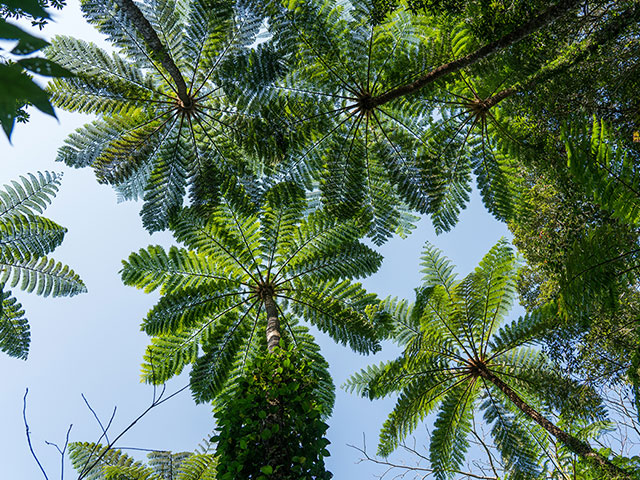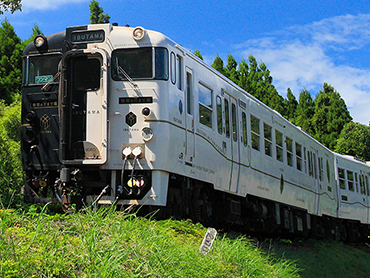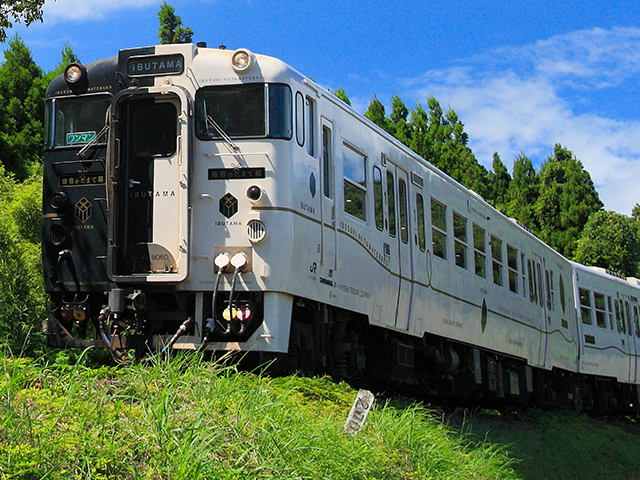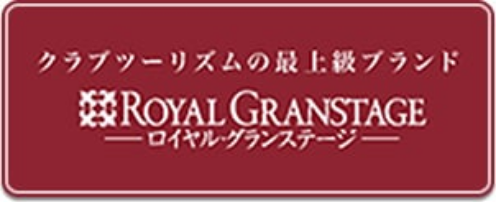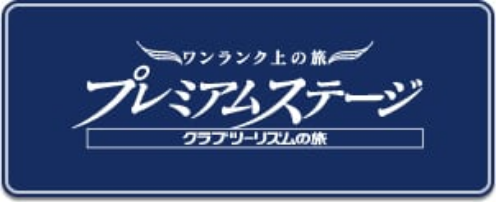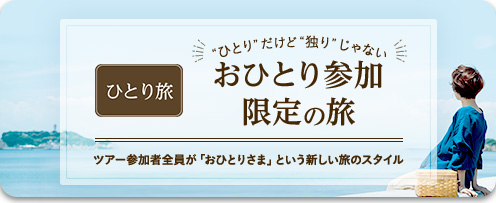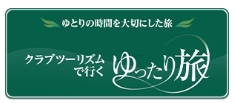Introduction to the Goto Islands


Nagasaki Goto Islands Tour and Travel Special by Club Tourism! With a tour guide, you will be well supported! We have a variety of plans to enjoy the Goto archipelago, including the Fukue island, which was decided to be registered as a World Heritage Site for "Nagasaki and Amakusa related to the Hidden Christianity in the region". Searching and booking tours is easy.
Introduction to the Goto Islands
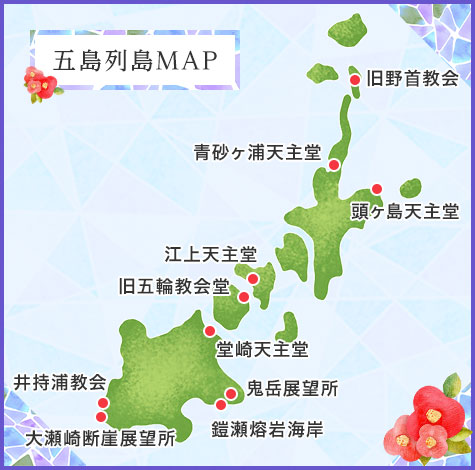
五島列島とは?
九州長崎の西方100kmに浮かぶ大小140余りの島々からなり、美しい海と手付かずの自然に溢れる五島列島。2018年6月には、「長崎と天草地方の潜伏キリシタン関連遺産」として登録され、世界文化遺産の島にもなりました。
悲しいほど美しい、といわれる五島列島の教会や自然・食事を2泊3日で満喫できるモデルコースをご紹介します。
A sample itinerary for the Goto Islands
Day 1
*In the itinerary, = means travel by bus, and ~ means travel by boat.
Onidake Onsen = Onidake Observation Point = Abumise Lava Coast (the coastline is lined with black rocks) = Imochiura Church, Lourdes = Osezaki Cliff Observation Point (lighthouse at the westernmost point of Fukue Island) = Takahama Beach = Mizunoura Cathedral = Dozaki Cathedral = Fukue Island (overnight stay) *For dinner, try the local dish of miso-grilled boxfish and Goto beef.
Fukue Island
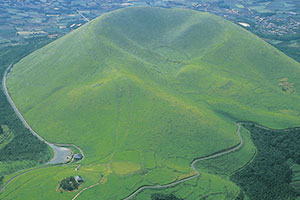
鬼岳(イメージ)
鬼岳展望所
鬼岳展望所からは、眼下に福江市街、福江港外に点在する島々を望むことができ、訪れる人たちの心を癒してくれます。周辺は観光施設が整備され、福江島観光の拠点になっています。
▼
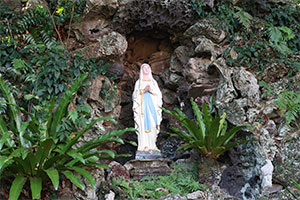
井持浦教会・ルルド(イメージ)
井持浦教会・ルルド
1897(明治30)年、フランス人宣教師ペルー神父によって建立。五島列島司牧の責任者ペルー神父は、1891年、バチカンにこのルルドの洞窟が再現されたと聞き、五島の信徒に呼びかけて島内の奇岩・珍石を集め、1899年、日本で最初のルルドを作りました。
▼
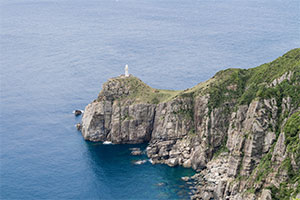
大瀬崎断崖展望所(イメージ)
大瀬崎断崖展望所
五島列島福江島の最西端にそそり立つ断崖の上に建てられた白亜の灯台。その先には、東シナ海の大パノラマが広がります。
▼
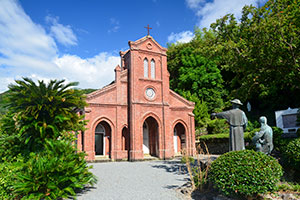
堂崎天主堂(イメージ)
堂崎天主堂
1879年にマルマン神父によって、五島における最初の天主堂(木造)がその建立。その後着任した、ペルー神父によって1908年に、現在のレンガ造りの教会堂が完成しました。建築の際には資材の一部がイタリアから運ばれ、内部は木造で色ガラス窓、コーモリ天井などの教会堂建築となっています。
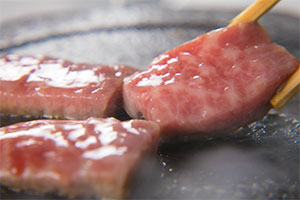
五島牛(イメージ)
五島で味わう絶品グルメ①五島牛
長崎県五島列島で肥育される肉牛。品種はほぼ黒毛和種。一般的な五島牛農家は子牛と繁殖牛を飼育し、肥育は行わないため、五島牛として流通する牛肉はわずかであり、ほとんどが長崎県内で消費されます。
Day 2
Hotel = Fukue Port ~ Hisaka Island / [World Heritage] Old Gorin Church ~ Naru Island / Naru Port = [World Heritage] Egami Cathedral ~ <<Christian Cruise / Christian Cave (view from the boat)>> ~ Nakadori Island / Gono-Kubi Port = Place associated with Ryoma = Kami-Goto (overnight) ★ Dinner is a Kaiseki Tairyohatazen meal
Hisaka Island
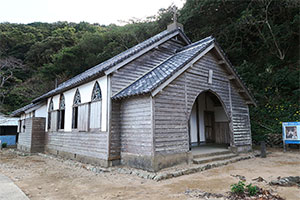
世界遺産・旧五輪教会堂(イメージ)
【世界遺産】旧五輪教会堂
世界文化遺産「長崎と天草地方の潜伏キリシタン関連遺産」の構成資産「久賀島の集落」に建つ教会。外観は素朴な和風建築だが、内部は三廊式、ゴシックの木造リブ・ヴォールト天井からなる明治初期の教会建築史を物語る貴重な遺構。
▼
Naru Island
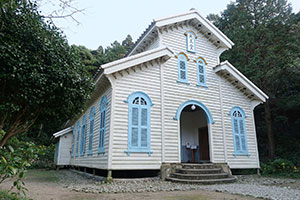
世界遺産・江上天主堂(イメージ)
【世界遺産】江上天主堂
長崎と天草地方の潜伏キリシタン関連遺産」を構成する「江上集落」に包括される教会。漁業を営む島民たちの収入によって作られた教会で、柱の手描きの木目模様、花を描いた窓の透明ガラスなど信者の献身的な作業が垣間見ることができます。
▼
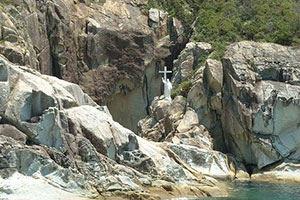
キリシタン洞窟(イメージ)
キリシタンクルーズ/キリシタン洞窟
幕末から明治初期にかけて、キリシタン弾圧は長崎各地で起きており、明治元年(1868)、キリシタン弾圧が起こり、弾圧の嵐が吹き荒れました。
そのような中、迫害を逃れるために、キリシタン達は船でしか行くことのできない洞窟に身を隠していました。洞窟は、若松港から瀬渡船で10分ほどのところにあり、奥行き50メートル、高さ5メートル、幅5メートル。よく見ると十字の形をしたドーム型洞窟で、海岸からは入口が見えないこの場所は格好の隠れ場であったといえます。
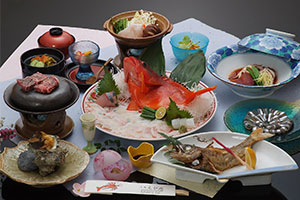
会席大漁旗膳(イメージ)
五島で味わう絶品グルメ②会席大漁旗膳
上五島には五島の新鮮な海鮮をつかった料理自慢の民宿や旅館が軒を連ねています。
中でも「民宿えび屋」では五島近海の海の幸満載の会席をご賞味いただけます。
季節によっては新鮮なクエやイセエビが食べられることも。
Day 3
Wakamatsu Island = Wakamatsu Island, Wakamatsu Bridge = Nakanoura Church = Nakadori Island, Yakatame Station (salt kiln tour) = Aosagaura Cathedral = Kashiragashima, [World Heritage] Kashiragashima Cathedral, Christian Cemetery = Meals ★ Lunch of the specialty Goto Jigoku-taki Udon = Arikawa Port
Wakamatsu Island
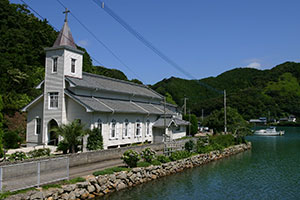
中ノ浦教会(イメージ)
中ノ浦教会
1925年建立の木造教会は、なくなってしまった久賀島の細石流教会とよく似た天井や花の装飾が特徴的です。
晴れた日には水辺に教会が写り、その風景は誰もが心なごむ美しい光景です。
▼
Togashima Island
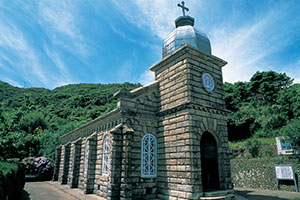
世界遺産・頭ヶ島天主堂(イメージ)
【世界遺産】頭ヶ島天主堂
2018年(平成30年)に世界文化遺産「長崎と天草地方の潜伏キリシタン関連遺産」に登録された「頭ヶ島の集落」にある石造りの天主堂。全国的にも珍しい石造りの教会で重圧的な概観とは対照に、内部には花柄の装飾が施されており、華やかな雰囲気が溢れています。
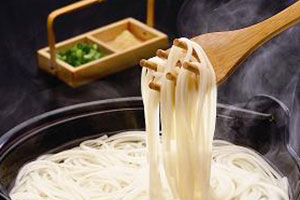
五島うどん(イメージ)
五島で味わう絶品グルメ③五島うどん
細麺ながらも強いコシを持ち、椿油を塗って熟成するのが特徴である五島うどん。長崎県を代表するうどんです。
地獄炊きとはグツグツと煮えたぎる鍋の中からうどんをすくい、薬味を加えた、お好みの焼きあご(飛魚)のだしにからめてすする上五島の伝統的な召し上がり方です。

